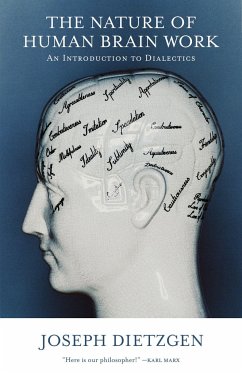Called by Marx “The Philosopher of Socialism,” Joseph Dietzgen was a pioneer of dialectical materialism and a fundamental influence on anarchist and socialist thought who we would do well not to forget. Dietzgen examines what we do when we think. He discovered that thinking is a process involving two opposing processes: generalization, and specialization. All thought is therefore a dialectical process. Our knowledge is inherently limited however, which makes truth relative and the seeking of truth on-going. The only absolute is existence itself, or the universe, everything else is limited or relative. Although a philosophical materialist, he extended these concepts to include all that was real, existing or had an impact upon the world. Thought and matter were no longer radically separated as in older forms of materialism. The Nature of Human Brain Work is vital for theorists today in that it lays the basis for a non-dogmatic, flexible, non-sectarian, yet principled socialist politics.
Hinweis: Dieser Artikel kann nur an eine deutsche Lieferadresse ausgeliefert werden.
Hinweis: Dieser Artikel kann nur an eine deutsche Lieferadresse ausgeliefert werden.








